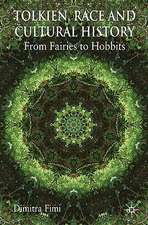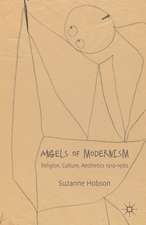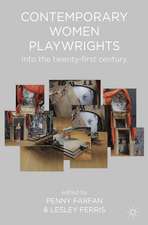Conceiving Strangeness in British First World War Writing
Autor C. Bucken Limba Engleză Hardback – 9 apr 2015
| Toate formatele și edițiile | Preț | Express |
|---|---|---|
| Paperback (1) | 384.48 lei 6-8 săpt. | |
| Palgrave Macmillan UK – 2015 | 384.48 lei 6-8 săpt. | |
| Hardback (1) | 389.49 lei 6-8 săpt. | |
| Palgrave Macmillan UK – 9 apr 2015 | 389.49 lei 6-8 săpt. |
Preț: 389.49 lei
Nou
Puncte Express: 584
Preț estimativ în valută:
74.53€ • 77.97$ • 61.91£
74.53€ • 77.97$ • 61.91£
Carte tipărită la comandă
Livrare economică 02-16 aprilie
Preluare comenzi: 021 569.72.76
Specificații
ISBN-13: 9781137471642
ISBN-10: 1137471646
Pagini: 249
Ilustrații: X, 249 p.
Dimensiuni: 140 x 216 x 16 mm
Greutate: 0.45 kg
Ediția:2015
Editura: Palgrave Macmillan UK
Colecția Palgrave Macmillan
Locul publicării:London, United Kingdom
ISBN-10: 1137471646
Pagini: 249
Ilustrații: X, 249 p.
Dimensiuni: 140 x 216 x 16 mm
Greutate: 0.45 kg
Ediția:2015
Editura: Palgrave Macmillan UK
Colecția Palgrave Macmillan
Locul publicării:London, United Kingdom
Cuprins
List of illustrations Acknowledgments Introduction 1. The First World War and the Unhoming of Europe 2. Travelers on the Western Front: John Masefield, Edmund Blunden, Siegfried Sassoon, and Enid Bagnold 3. War's Colonial Aspect: Gertrude Bell, T.E. Lawrence, and E.M. Forster 4. Mapping Alterity Between Home and War Fronts: Rudyard Kipling, Enid Bagnold, and Rose Allatini 5. Bringing the War Home: The Imperial War Museum Coda Notes Bibliography Index
Recenzii
“A number of suggestive illustrations and photographs from periodicals, primarily the Illustrated London News, and from the Imperial War Museum in its early days are also included. … This will be a significant contribution to the field, impressive not only for the attention paid to underexplored sources, but also for the far-reaching implications of considering strangeness as a way of reconceptualizing our perceptions of the home front and the war zones.” (Emma Liggins, Women's Writing, September, 2016)
“Buck’s book begins with the commonsensical position that most English WW I writing has focused on the English perspective on the Western front or the home front, and in so doing has offered a narrow perspective that elides the war’s global dimension. … Summing Up: Recommended. … Upper-division undergraduates through faculty.” (G. Grieve-Carlson, Choice, Vol. 53 (6), February, 2016)
“In Conceiving Strangeness in British First World War Writing, Claire Buck finds that how wartime and postwar writers saw Britain as an imperial nation determined in large part how they thought of World War I. … The author therefore offers us a valuable and often neglected perspective, which is worthy of consideration in a class about World War I or when writing about that massive conflict.” (Stephen E. Tabachnick, English Literature in Transition, Vol. 59 (1), January, 2016)
“Buck’s book begins with the commonsensical position that most English WW I writing has focused on the English perspective on the Western front or the home front, and in so doing has offered a narrow perspective that elides the war’s global dimension. … Summing Up: Recommended. … Upper-division undergraduates through faculty.” (G. Grieve-Carlson, Choice, Vol. 53 (6), February, 2016)
“In Conceiving Strangeness in British First World War Writing, Claire Buck finds that how wartime and postwar writers saw Britain as an imperial nation determined in large part how they thought of World War I. … The author therefore offers us a valuable and often neglected perspective, which is worthy of consideration in a class about World War I or when writing about that massive conflict.” (Stephen E. Tabachnick, English Literature in Transition, Vol. 59 (1), January, 2016)
Notă biografică
Claire Buck teaches English at Wheaton College, in Massachusetts, USA. She is the author of H.D. and Freud: Bisexuality and a Feminine Discourse (1991) and editor of The Bloomsbury Guide to Women's Literature (1992), as well as numerous articles on Modernism, women's war poetry, and the First World War.















